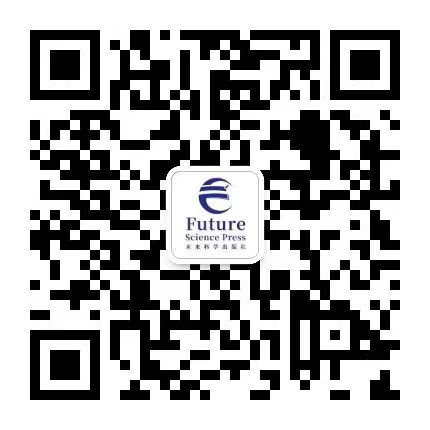作者:韩东阳
院校:曲阜师范大学
教育决策;教育政策模拟;以主体为基础的模型;模拟技术 教育决策;教育政策模拟;以主体为基础的模型;模拟技术
参考文献
【1】【美】乔治·赫伯特·米德(2014).心灵、自我和社会【M】.霍桂桓.南京:译林出版社:270-279. 【2】范国睿(2004).复杂科学与教育组织管理研究【J】.教育研究.(2):52-58. 【3】范国睿(2020).教育政策研究【M】.福州:福建教育出版社:274-284.
【4】范小云,张景松,王博(2015).金融危机及其应对政策对我国宏观经济的影响——基于金融CGE模型的模拟分析【J】金融研究,(9):50-65.
【5】高晓清,蒋小丰(2007).我国教育政策研究20年【J】.中国教育学刊,(10):24-27.
【6】顾小清,薛耀锋,孙妍妍(2016).大数据时代的教育决策研究:数据的力量与模拟的优势【J】.中国电化教育,(1):56-62. 【7】郭震威,齐险峰(2008).“四二一”家庭微观仿真模型在生育政策研究中的应用【J】.人口研究,(2):5-15. 【8】 韩月(2019).教育政策创新扩散的风险及其规制——以新高考改革试点为例【J.教育发展研究 ,39(12):37-42 【9】 胡伶(2017).我国教育政策研究方法的演进与反思:2000-2015年【J】.现代教育管理,(6):47-52. 【10】胡荣(1989).符号互动论的方法论意义【J】.社会学研究,(1):98-104. 【11】劳凯声(2014).教育研究的问题意识【J】.教育研究,35(8):4-14.
【12】李大宇,米加宁,徐磊(2011).公共政策仿真方法:原理、应用与前景【J】.公共管理学报,8(4):8-20,122-123. 【13】李志超(2015).教育政策比较研究的价值及其限度【J】.比较教育研究,37(4):15-20.
【14】廖守亿,戴金海(2004),复杂适应系统及基于Agent的建模与仿真方法【J】.系统仿真学报,(1):113-117. 【15】刘复兴(2004).论我国教育政策范式的转变【J】.北京师范大学学报(社会科学版),(3);15-19.
【16】刘军强,胡国鹏,李振(2018).试点与实验:社会实验法及其对试点机制的启示【1.政治学研究.(4):103-116,128. 【17】娄成武,田旭(2013).中国公共政策仿真研究:现状、问题与展望——基于CNKI相关文献的统计分析【J】.中国行政管理,(3):24-29,98.
【18】彭荣础(2011).思辨研究方法:历史、困境与前景【J】.大学教育科学,(5):86-88.
【19】邱枫,米加宁,梁恒(2013).基于主体建模仿真的公共政策分析框架【J】.东北农业大学学报(社会科学版),11(4):71-78.
【20】石敏俊(2016).区域发展政策模拟【M】.北京:中国人民大学出版社:38. 【21】王铮,吴静,孙翊等(2016).政策模拟导论【M】.北京:科学出版社:220-227. 【22】吴全华(2018).论教育改革试点的非理性现象【J】.全球教育展望,47(11):63-71.
【23】叶澜,陈桂生,瞿保全(1989).同看科字化的目标前进一——试还北十年我国教育研究方法的演进【J】.中国教育学刊,(3):2-6.
【24】余清臣(2018).论教育思辨研究的时代挑战与应对【J】.教育学报,14(5):13-21.
【25】余胜泉,徐刘杰(2019).大数据时代的教育计算实验研究【J】.电化教育研究,40(1):17-24.
【26】袁振国(2017).实证研究是教育学走向科学的必要途径【J】.华东师范大学学报(教育科学版),35(3);417,168. 【27】张同斌,高铁梅(2012).财税政策激励、高新技术产业发展与产业结构调整【J】.经济研究,47(58-70.
【28】张友国,郑世林,周黎安等(2015).征税标准与碳关税对中国经济和碳排放的潜在影响【J.世界经济,38(2):167-192. 【29】赵春富,刘耕源,陈彬(2015).能源预测预警理论与方法研究进展【J】.生态学报,35(7):2399-2413.
【30】赵俊芳,刘艳红(2019).高考改革社会风险评估与规避机制刍议——基于权力监督与公共政策价值分析的视角【J】大学教育科学,(1):53-59,124.
【31】郑金洲,程亮(2005).中国教育学研究的发展趋向【J】.教育研究,(11):3-10.
【32】郑永和,严晓梅,王晶莹等(2020).计算教育学论纲:立场、范式与体系【J】.华东师范大学学报(教育科学版),38(6):1-19.
【33】钟玮,刘洋(2017).基于主体模拟:一种探索公共管理问题的新方法【J】.中国行政管理,379(1):72-78.
[34]Akyol,M.(2016).Do Educational Vouchers Reduce Inequality and Inefficiency in Education?[J]. Economics of Education Review,55:149-167.
[35]Axelrod,R.(1997).Advancing the Art of Simulation in the Social Sciences[J].Complexity,3(2):16-22. [36]Davis,J.P.,Eisenhardt,K.M.,&Bingham,C.B.(2007).Developing Theory Through Simulation Methods[J]. Academy of Management Review,32(2):480-499.
【37】Hedström,P.,&Ylikoski,P.(2010).Causal Mechanisms in the Social Sciences【J】.Annual Review of Sociology,36:49-67.
[38]Macal,C.M.,&North,M.J.(2010).Tutorial on Agent-Based Modelling and Simulation[J].Journal of Simulation,4(3):151-162.
[39]Macy,M.W.,&Willer,R.(2002).From Factors toActors: Computational Sociology and Agent-Based Modeling[J].Annual Review of Sociology,28:143-166.
Copyright © 2021-2022 未来科学出版社 All Rights Reserved.
+65 6396 6190

微信二维码